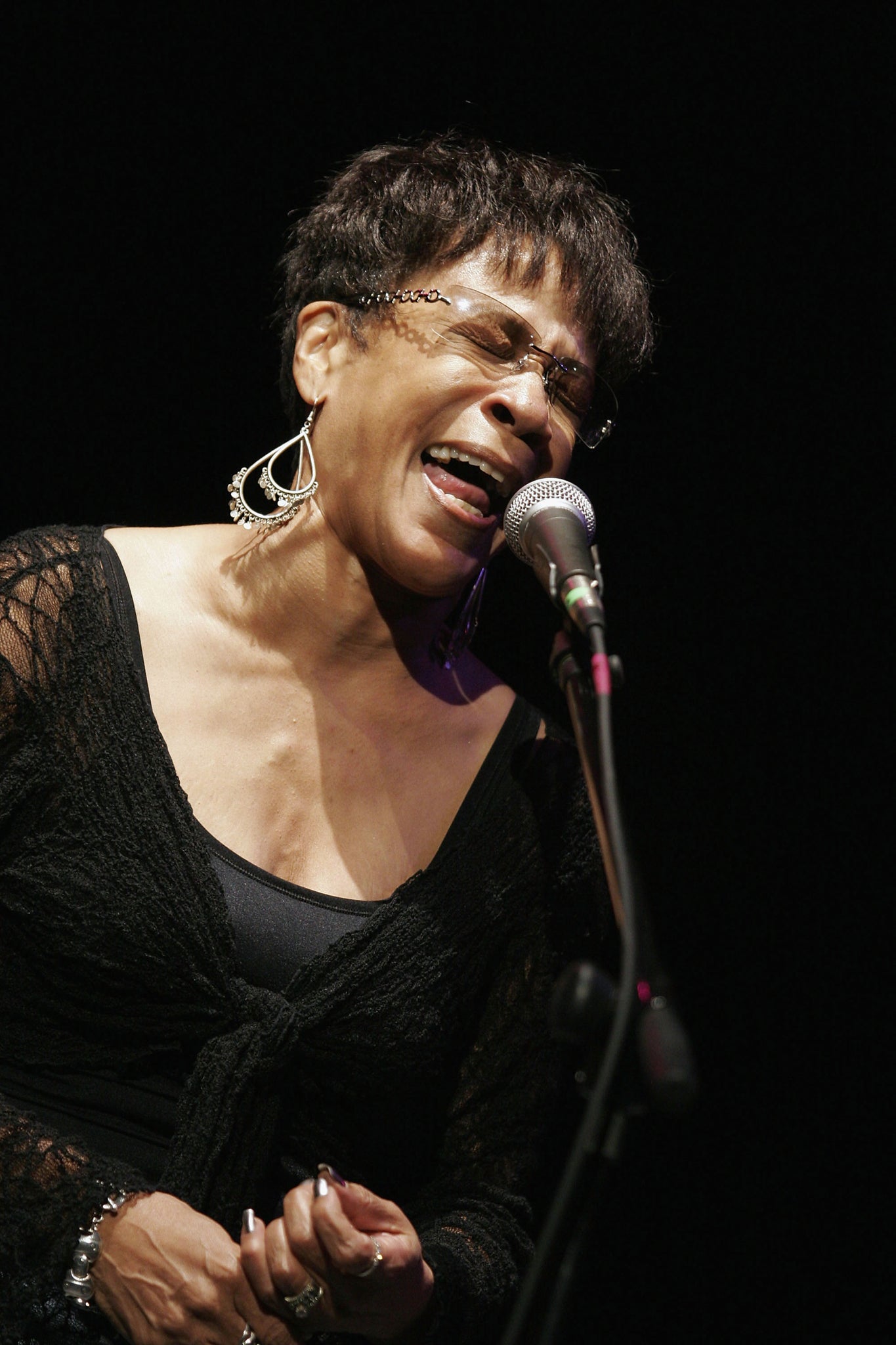
“We have just finished the 8-year Who the Hell Is She? Tour,” Bettye LaVette jokes, with a smile which could be the definition of rueful.
Now this lone UK date finds her celebrating 50 years in show business, since her first single, “My Man - He’s A Lovin’ Man”, started her off with a minor hit in the days of JFK.
In her Detroit hometown she knew everyone from Otis to Aretha, but a tempestuous life and mysteriously buried 1972 album left her in the cold.
Since then, one 1965 single prized by UK Northern Soul collectors has let her continue to declare herself “an international entertainer” or, she adds with grim humility, “anybody at all”. Singing that song, “Let Me Down Easy”, tonight, a pulse of bass, spare guitar and organ support her as she steps through and describes failure’s lonely room.
Five fine albums over the last decade, the latest being Thankful N’ Thoughtful, have seen her perform at President Obama’s inauguration, her great talent finally recognised. The upside to this gruelling road, now she’s 66? “I no longer care what you think.”
There’s a humorous, carefree looseness to LaVette, a feeling that the distance between this unrepentant, strong woman who still downs a bottle of champagne a day and the emotionally deep songs she sings is unusually small.
She hunkers her body down as if holding forth over the bar, her almost rasping, grit-flecked voice naturally punctuating her conversational narration of lyrics with devastated cries. Neil Young’s “Heart of Gold” begins with Alan Hill’s minor key keyboards, making it sound like a Nina Simone ballad, for the first time slowing down the pain and yearning so you can feel it. “Didn’t sell a copy,” she says of her version, relishing the dismissal.
By Gnarls Barkley’s “Crazy”, the band’s harmonies are swelling to carry her into the song’s painful centre, after which she mops her face, emotions wrung out. “I’ve lost it all,” she sings later, “but a lot of people think that I’m lucky.”
She enunciates the last words of the closing, a cappella, passionate gospel acceptance of “I Do Not Want What I Have Not Got”. Flinging her mic wide for one unadorned word from that voice, she’s stripped her situation down to its essence. Not many have worked so long and hard for the applause.
Subscribe to Independent Premium to bookmark this article
Want to bookmark your favourite articles and stories to read or reference later? Start your Independent Premium subscription today.

Join our commenting forum
Join thought-provoking conversations, follow other Independent readers and see their replies